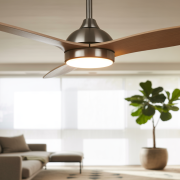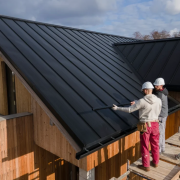How old is your air conditioning unit? Do you know the answer to that without looking it up? Would you know how to look it up in the first place? It’s okay if you don’t know the answers to those questions off the top of your head. For most people, knowledge of their HVAC systems begins and end with turning the cool air on when it’s hot and turning the heat on when it gets cold. If you’re especially responsible, you might even swap out your air filter monthly. That’s definitely something you haven’t forgotten to do, especially this month. Or the last month, or the month before that. Likewise, you absolutely haven’t forgotten to make sure that your home’s vents are free of debris and dangerously flammable lint, which you’ve been diligently doing at least once a week.
You’ve been doing all that, haven’t you?
No need to worry if you haven’t. Most people in Allentown, PA let these things fall through the proverbial cracks from time to time. The sad truth is that HVAC system maintenance isn’t common knowledge, though it should be. It’s probable that you weren’t even aware that those are some of the recommended ways to make sure your air conditioning is working at full capacity and isn’t incurring any extra wear and tear. Making sure that it’s up to snuff is not only vital for keeping comfortable, in our increasingly extreme climate it’s necessary for survival, too. Summers are getting too hot and winters too bitterly cold for you to shirk on your responsibility to system maintenance.
Fortunately, you’re in good hands. If your unit is older than even just a few years, you may be overdue for some maintenance or, more dramatically, a completely new unit. We spoke with the experts at Werley Heating & Air Conditioning about how and when to service what you have versus when to consider getting a new unit altogether. HVAC is a complex beast, and it’s understandable that you might need a little extra help making heads or tails of how you’re supposed to be approaching it. You may be surprised by just how much goes into your air conditioning! Read on to determine which option is going to be best for you.
It Might Be Time for a Checkup

Chances are that you only call a repair service when your air conditioning isn’t working, or if it isn’t doing as good a job as it usually does at keeping your home cooled or heated. That’s totally understandable, as technicians can be expensive. However, and this is a theme we’ll see throughout this article, spending a little money early on is a great way to save a lot of money later. It’s less expensive to get an inspection and make minor adjustments or repairs than it is to fix a completely non-functional unit, which might force the choice regarding replacement on you anyway. Your air conditioning works hard, and it deserves to be kept in good repair. So, what do you need to do?
It’s a good idea to have a technician come out to inspect your central air system at least once every three months, which will roughly align with more drastic changes in outside temperature. Let’s be real about the elephant in the room: climate change (specifically, global warming increasing the average temperature every year) is an AC killer. As the world gets hotter, the impact on your air conditioning unit gets even more powerful. The wear and tear on your unit can cause catastrophic failure if not properly maintained.
Having your system inspected and maintained four times a year is usually enough to offset the ambient damage that comes from your AC working harder than it’s ever had to work before. A technician will also be able to look into the rest of your system, not just the central unit. They’ll be able to clear vents of lint and debris, and make sure there are no blockages in airflow. Keeping a regular schedule will keep your home well heated and well cooled.
When Should I Replace My Unit?
This question may sit uneasy on the whole situation, but it might actually be less expensive in the long run to get yourself a brand-new AC unit instead of keeping your existing one running. There’s no way around it: the upfront cost is going to be a lot more than the cost of maintenance on an existing unit. However, the tradeoff you’ll get is that you’re going to be running something that’s adapted to the modern world and, ultimately, something that’s more efficient and powerful than your old one. There are several factors that go into making this decision, and it absolutely should not be made lightly. However, replacing your exiting system with a newer one might be the smart choice. Consider buying a car. Sometimes, you can get by just fine by keeping the car you own running. Sometimes, however, your better choice is to buy a new one altogether.
As we discussed earlier, one of the most insidious forces conspiring to make your older unit less effective is the ongoing, out of control climate change ravaging the planet. Temperatures are going up, and each summer is hotter than the last one. The hotter it is, the more your AC has to work in order to produce the same amount of cool. Though you may not feel the oppressive heat as much inside, and a cool inside temperature of 69 degrees might feel just as nice when it’s 80 degrees outside as when it’s 100 degrees outside, your central air unit is going to feel the difference. Newer models are designed to better weather the increase in temperatures, both by being more energy efficient and being hardier against the heat. You may benefit from upgrading to a model that’s better at handling your needs than what you already have.













Comments